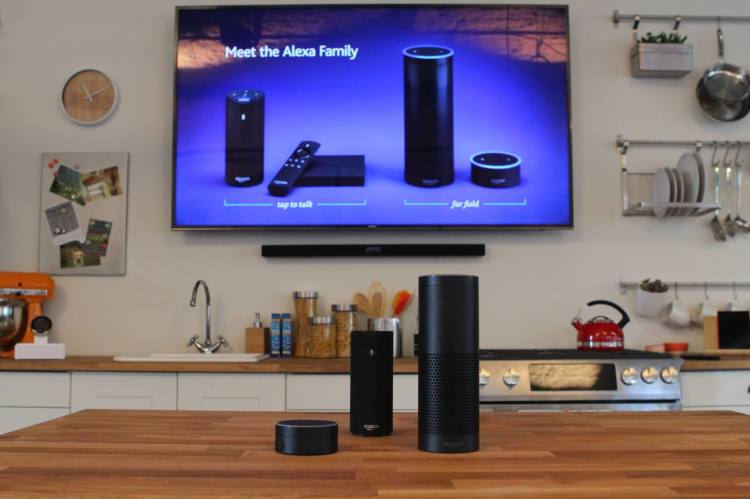Amazon Alexa is slowly becoming self-aware.
Well, not really. Amazon has added some new features, including the ability to read an entire book, start your Ford Fusion (still in beta), and unlock the doors of your house with a simple command. You can engage in a conversation, or even play a role-playing game. A soothing voice and lame jokes make Alexa highly accessible, like a robot friend who can handle some routine chores. I’ve ordered pizza by voice, and I love asking about the weather forecast right before heading out on business trips.
Yet, Alexa is far from perfect. And Alexa is not a sentient being. For now, there are enough faults that this intelligent voice agent is not an ideal example of how chatbots — which use text in messaging apps like Facebook Messenger — should work. Of course, Alexa has some good aspects and some serious issues, as with anything truly innovative in tech. Here are a few of both to keep in mind.
Pros
Alexa has many positive features. I have used the voice assistant on my phone, with the Amazon Echo speaker, and even with a radio, called the Triby, in my kitchen. One of the main benefits of Alexa is that the assistant understands almost everything I say. For chatbots, that’s critical. Any bot worth using should understand natural language processing. If it doesn’t, it will suffer a quick death on the market.
Alexa is also highly extensible. I use the assistant with a Vivint home security system and have a feature that lets me control the locks in my home. (As a security precaution, the feature only lets you lock, not unlock your home.) That’s a great integration, and chatbots need to follow this example. If a chatbot only works with a few basic services, like your calendar, it won’t survive for long.
More than anything, Alexa actually saves time and improves your day. I use the Domino’s feature at least once per month, as I can order a pizza by voice much faster than using any app. Everything on Alexa seems to work smoothly, from getting the weather to getting a quick lowdown on the news. Chatbots need to follow suit.
Cons
Alexa has a ways to go, however. One of the issues I’ve noticed lately is that the bot works with quite a few services but is far from even making a dent in the connected home market. I can raise and lower the temperature in my home by voice, but not with the Honeywell smart thermostats. (Update: Amazon recently added this feature as a skill in the Alexa app.)
Alexa works with the Sensi brand — but only after some configuration of both the hardware and the software. Chatbots that are truly useful will need to extend themselves far beyond a simple set of connections.
Another big gripe I have with Alexa is that it only works when I’m in my office. I have an Echo speaker there, and my phone with the Alexa app is usually tucked away somewhere (I use Skype at my desk with a headset). I should be able to talk to Alexa in any room, but it doesn’t quite work that way yet. Compatibility is a big issue for any bot. Maybe they need to work on iOS and Android but also on BlackBerry devices and on Windows phones. Bonus if a chatbot works on phones that are not even available anymore.
And, last but not least, Alexa can be temperamental. As we reported recently, the service was down for a while. I’ve personally experienced outages at times. When reading a book, I’ve had the speaker fail a few times, which ruins the experience. A chatbot that crashes is a useless chatbot, especially as we’re trying to adjust to the idea of using them. To make a good first impression, chatbots better work almost perfectly.
VentureBeat's mission is to be a digital town square for technical decision-makers to gain knowledge about transformative enterprise technology and transact. Learn More

